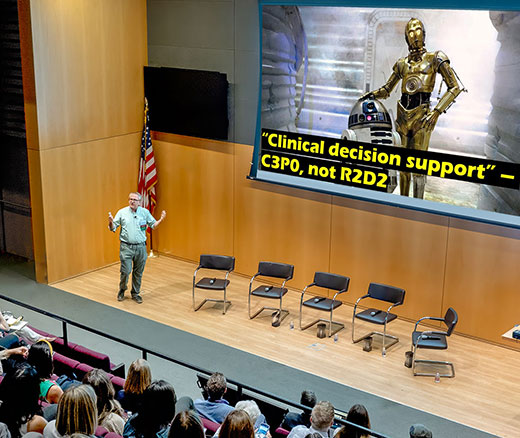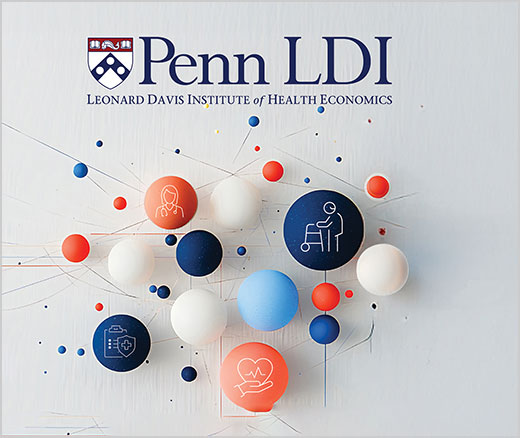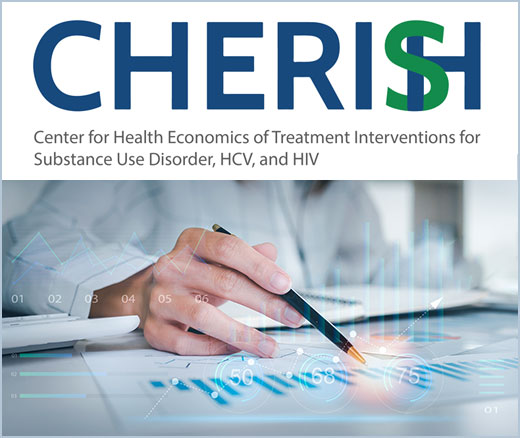
In the Loop or On the Loop: The Conundrum of AI Clinical Decision Support
2025 Penn Nudges in Health Care Symposium Focuses on the Human-Machine Interface
Blog Post

A recently published national study finds that patients newly diagnosed with advanced cancer did not experience COVID-related treatment delays or changes in the type of treatment they received. These findings, published in the Journal of the National Cancer Institute, stand in contrast to earlier studies that identified delays across the cancer care continuum.
A multi-institution team, led by LDI Fellows Ravi Parikh and Samuel Takvorian, studied more than 14,000 patients diagnosed with metastatic solid cancer just before or during the COVID pandemic in 2020 and during a comparable period in 2019, who received care at predominantly community-based oncology practices.

Across all periods, the median time to treatment initiation was 35 days, with 44.0% of patients initiating treatment within 30 days of diagnosis. The proportion of patients initiating treatment within 30 days was similar across periods, and diagnosis during the COVID period did not affect this outcome.
Furthermore, the COVID pandemic did not impact the type of treatment patients received, allaying fears that the pandemic may have disrupted cancer treatment patterns for those with metastatic disease. This was a concern because guidelines issued during the pandemic initially warned that myelosuppressive therapies that affect the immune system might increase the risk and/or severity of COVID-19.
Not all findings were reassuring, however. The researchers found that during the pandemic, a greater proportion of new metastatic diagnoses were de novo – i.e., manifesting initially at the metastatic stage rather than as recurrences of a previously diagnosed cancer. This may reflect a COVID-related decrease in routine surveillance, detection, and diagnosis, which if true, might portend a backlog of cancer recurrences yet to manifest. The authors cautioned, however, that this might also represent a COVID-related data capture issue. Future studies with longer follow-up will be needed to evaluate how this potential shift will affect cancer-related outcomes.
The paper, Impact of the COVID-19 Pandemic on Treatment Patterns for Patients with Metastatic Solid Cancer in the United States, was published in the Journal of the National Cancer Institute on December 10, 2021. Authors include Ravi B. Parikh, Samuel U. Takvorian, Daniel Vader, E. Paul Wileyto, Amy S. Clark, Daniel J. Lee, MD, Gaurav Goyal, Gabrielle B. Rocque, Efrat Dotan, Daniel M. Geynisman, Pooja Phull, Philippe E. Spiess, Roger Y. Kim, Amy J. Davidoff, Cary P. Gross, Natalia Neparidze, Rebecca A. Miksad, Gregory S. Calip, Caleb M. Hearn, Will Ferrell, Lawrence N. Shulman, Ronac Mamtani, and Rebecca A. Hubbard.


2025 Penn Nudges in Health Care Symposium Focuses on the Human-Machine Interface

Former Philadelphia Health Commissioner Warns That Gutting the CDC, Undermining Vaccines, and Politicizing Science Will Leave the U.S. Dangerously Unprepared for the Next Pandemic

Some Hospice Agencies Adjusted Admissions and Discharges to Maximize Payments

New Program Launches Research Initiatives Focused on Improving Primary Care for Older Adults

Rural Parents Had More Emergency Visits and Insurance Loss Than Urban Peers, an LDI Study Shows. Integrated Baby Visits Could Help All Parents Be Healthier

Penn and Four Other Partners Focus on the Health Economics of Substance Use Disorder